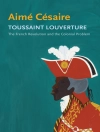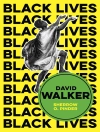At the start of the twentieth century, the pre-eminent black sociologist, W.E.B. Du Bois, identified the color line as America’s great problem. While the color line is increasingly variegated beyond black and white, and more openly discussed than ever before as more racial and ethnic groups call America home, his words still ring true.
Today, post-racial and colorblind ideals dominate the American narrative, obscuring the reality of racism and discrimination, hiding if only temporarily the inconvenience of deep racial disparity. This is the quintessential American paradox: our embrace of the ideals of meritocracy despite the systemic racial advantages and disadvantages accrued across generations.
This book provides a sociology of the Black American experience. To be Black in America is to exist amongst myriad contradictions: racial progress and regression, abject poverty amidst profound wealth, discriminatory policing yet equal protection under the law. This book explores these contradictions in the context of residential segregation, labor market experiences, and the criminal justice system, among other topics, highlighting the historical processes and contemporary social arrangements that simultaneously reinforce race and racism, necessitating resistance in post-civil rights America.
Innehållsförteckning
Spotlights on Resistance
Contributors
Introduction Are We ‘Post-Racial’ Yet?
Chapter 1 How Blacks Became the Problem: American Racism and the Fight for Equality
Chapter 2 Crafting the Racial Frame: Blackness and the Myth of the Monolith with Candace S. King and Emmanuel Adero
Chapter 3 Whose Life Matters? Value and Disdain in American Society
Chapter 4 Staying Inside the Red Line: Housing Segregation and the Rise of the Ghetto
Chapter 5 Who Gets to Work? Understanding the Black Labor Market Experience
Chapter 6 Is Justice Blind? Race and the Rise of Mass Incarceration with Lucius Couloute
Chapter 7 Reifying the Problem: Racism and the Persistence of the Color Line in American Politics with Emmanuel Adero
Epilogue
About the Contributors
Glossary
References
Om författaren
Enobong Hannah Branch is Professor of Sociology and Vice Chancellor for Diversity, Inclusion, and Community Engagement at Rutgers University–New Brunswick
Christina Jackson is Assistant Professor of Sociology at Stockton University












